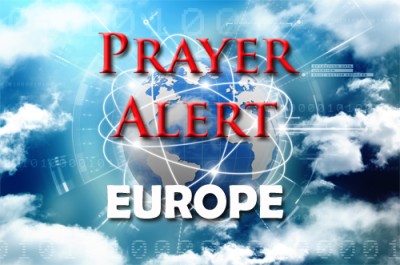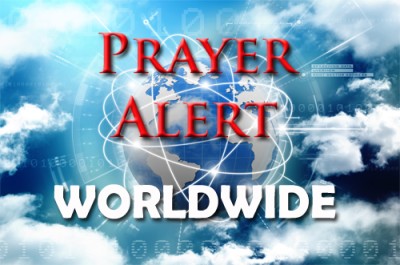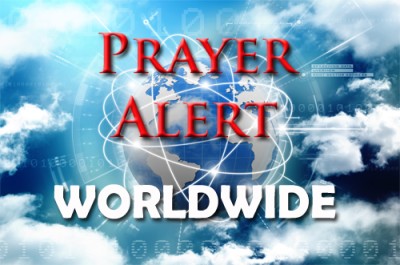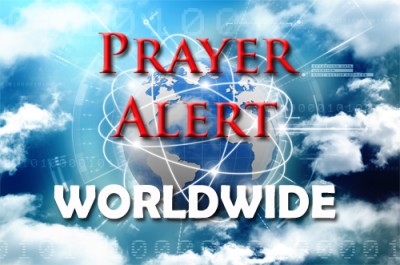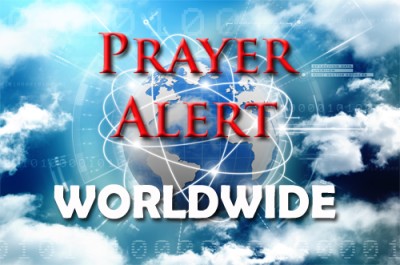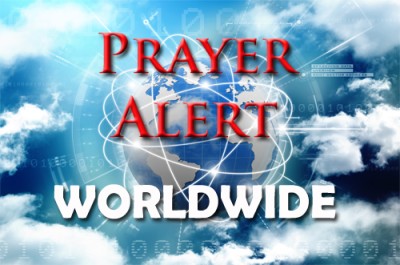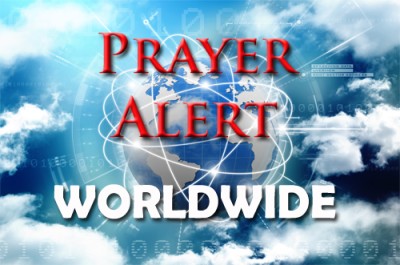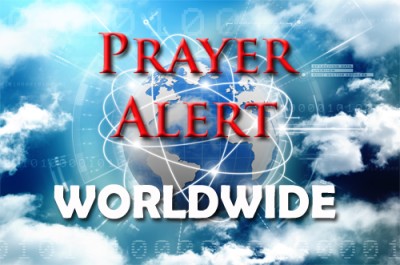France: ‘We are waiting for rain’
19 Aug 2022Hervé Trentin, a veteran firefighter, stood on the edge of a charred section of forest wiping tears from his cheeks. It was the second time he had cried that morning. He and his team were moving around an area south of Bordeaux trying to stay ahead of a megafire. Their job was burning the forest, to create firebreaks - a tactic they are trained to master. They are the only ones in the region capable of doing the job. Trentin grew up there, and setting his home soil alight was disturbing. He said ‘The forest needs over thirty years to recover.’ In July a megafire appeared to be under control, but the heat remained in the earth, creating a ‘zombie fire’ that re-emerged and accelerated new fires in the dry conditions.
Global repercussions of Ukraine war
19 Aug 2022While explosions rocked a Crimean ammunition depot, disrupting railway services and causing 2,000 people to be evacuated from a nearby village, the Russian defence minister claimed Ukrainian military operations were being planned by the Americans and British while NATO increased its troop deployment in eastern and central Europe ‘several times over’. Vladimir Putin also said the bloc of Australia, UK, and the USA had the potential to develop into ‘a political-military alliance’. Meanwhile Russia’s Black Sea fleet struggles to exercise effective sea control, with patrols generally limited to the waters within sight of the Crimean coast, according to British intelligence reports. The fleet continues to use long-range cruise missiles to support ground offensives, but is keeping a defensive posture. Britain is training 10,000 Ukrainian raw recruits in marksmanship, battlefield first aid, and urban warfare. Canada, the Netherlands, New Zealand, and Nordic nations are also providing training.
India: escalating Christian persecution
19 Aug 2022The persecution of Christians in India is intensifying as Hindu extremists aim to cleanse the country of their presence and influence. The driving force behind this is Hindutva, an ideology that refuses to treat Christians and other religious minorities as true Indians because they allegedly have allegiances that lie outside India; it asserts the country should be purified of their presence. This is leading to systemic, often violent, carefully orchestrated targeting of Christians. The extremists often use social media to spread disinformation and stir up hatred. Pray that social media companies will do more to combat the spread of fake news and hatred on their platforms. Overall, violence against Christians remains at an extreme level, and levels of pressure in all spheres of life remain very high or extreme. Regions experiencing the most persecution are ruled by the Hindu nationalist party (BJP). Pray that this situation changes with the next elections (Himachal Pradesh in November and Gujarat in December).
The Meeting House church in Oakville, Canada has had ‘substantiated’ sexual abuse allegations against its former leader, Bruxy Cavey. In June, he was charged with one count of sexual abuse after an internal investigation. Then the church announced two further investigations, as more accusations of sexual abuse against him and former pastor Tim Day were submitted: see In Australia the Charities and Not-for-Profits Commission launched an investigation into the Hillsong megachurch in March after a former employee alleged financial malpractice, including using tax-free money for ‘large cash gifts’ to former Hillsong global leader Brian Houston and his family. See also
Ethiopia: prayer needs
18 Aug 2022Ethiopians have a catastrophic hunger crisis after four failed harvest seasons due to drought. There are dire predictions for the autumn harvest. 91% of people in southern Ethiopia live in rural areas, depending on livestock and agriculture to survive – the backbone of Ethiopia’s economy. All grazing lands and water sources have dried out. Livestock and crops have perished. There are severe food shortages. People travel for hours searching for water. This responsibility falls to women and girls, putting them at risk on dangerous routes. Girls are also missing school. Pray for agencies to provide adequate nourishing food and clean water where it is needed. Pray for people to feel God’s love and comfort surrounding them. Pray that there will be no long-term side effects or medical conditions due to hunger. Ask God to bring the rainfall that is needed; may this lead to abundant harvests and water sources springing up again closer to communities.
Afghanistan: how to pray, one year on
18 Aug 2022In August 2021 Afghans dreading the return of the draconian Taliban regime risked their lives clinging to the outside of departing planes, desperate to escape. Afghanistan is now the most dangerous place in the world to be a Christian. Closing the ministry of women’s affairs demonstrated a return to the denigration of women that had previously characterised the Taliban rule. Except for healthcare workers, women must stay at home ‘to protect their safety’. Girls’ secondary schools stay closed ‘until a comprehensive plan is prepared according to Sharia and Afghan culture’. The Taliban have re-established the ‘Ministry for the Prevention of Vice and Promotion of Virtue’ to enforce their strict interpretation of Sharia. Their drive for only the ‘purest’ form of Islam has left no room for Christians in Afghanistan. Please pray for the safety and protection of secret believers from being discovered, and for the families who have to leave everything behind as they flee to safety. See also
Russian military expert Igor Korotchenko said on state TV: ‘There are 100,000 North Korean volunteers prepared to come and take part in the war in Ukraine. North Korean builders are ready to work alongside ours to repair war damage. If North Korean volunteers with their artillery systems, wealth of experience with counter-battery warfare, and large calibre multi-launch rocket systems, want to participate in the conflict, well, let’s give the green light to their volunteer impulse.’ A South Korean report stated that the North is already preparing to dispatch its workers to the pro-Russian Donbas region in eastern Ukraine. Calling the North Korean troops ‘resilient, undemanding and motivated’, a Russian journalist said that the Kremlin ‘should not be shy in accepting the hand extended to us by Kim Jong-un’.
USA: Trump investigation
18 Aug 2022The FBI search warrant of former president Donald Trump's Florida home authorised confiscation of every record he ever saw, read or created during his four years as commander-in-chief, right down to scribbles on a napkin. Democrats are asking for a damage assessment from the intelligence community on the eleven sets of classified documents recovered in the raid, including one marked ‘SCI’, a classification for some of the most sensitive national security information that is normally viewed in a highly secured location. A Trump lawyer signed a statement in June saying ‘all classified documents at Mar-a-Lago had been turned over to federal investigators’. On 14 August Trump’s lawyer claimed all investigations into ‘him will be dropped if he says he won’t run to be elected president in 2024. Later Trump’s office released a new defence statement: ‘As we can all relate to, everyone ends up having to bring home their work from time to time. American presidents are no different.'
